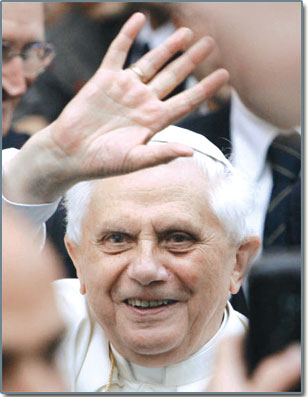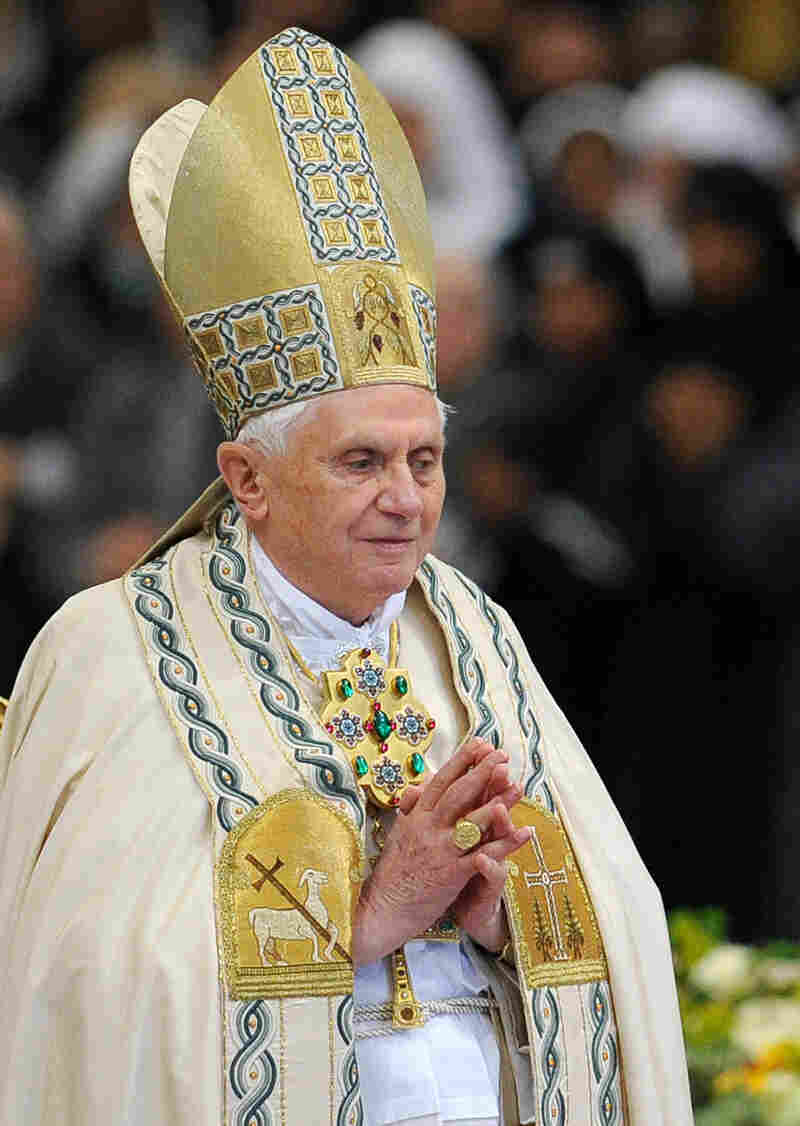Is this the dawn of a new era for the Catholic Church? The election of Robert Francis Prevost, now known as Pope Leo XIV, marks a historic moment, as he becomes the first American to lead the global Catholic community, a significant turning point in the Church's long and complex history.
Rome, a city steeped in history and tradition, witnessed a pivotal event. On the second day of the papal conclave, held in the heart of Vatican City, 133 cardinals from across the globe convened to choose the successor to the late Pope Francis. The cardinals, representing the diverse tapestry of the Catholic Church worldwide, engaged in days of prayer, reflection, and deliberation before casting their votes. The atmosphere was thick with anticipation, the weight of expectation hanging heavy in the air as the world watched and waited.
The announcement, delivered by Cardinal Protodeacon Dominique Mamberti, echoed through St. Peter's Square, Annuntio vobis gaudium magnum: Habemus Papam! (I announce to you a great joy: We have a Pope!). The name, Leo XIV, resonated, signaling a new chapter for the Church. The choice of the name Leo evokes a sense of strength and leadership, hinting at the potential direction of the new pontificate. But who is this man, this American, who now bears the mantle of St. Peter? His selection is a seismic event, a monumental shift with wide-ranging implications.
Robert Francis Prevost, the newly elected Pope Leo XIV, presents a compelling profile. Born in Chicago in 1955, he brings a fresh perspective to the papacy. His background, a blend of American, French, Italian, and Spanish heritage, gives him a unique understanding of the global Church. His journey has taken him far from the familiar streets of Chicago, shaping him into a leader ready to navigate the complexities of the modern world.
The new pontiff's early life unfolded in the United States, but his life’s journey has extended far beyond the borders of his birth country. He has spent considerable time in Europe and Latin America, broadening his horizons and deepening his understanding of different cultures and contexts. In 2015, he became a naturalized citizen of Peru, further solidifying his connections to the diverse realities of the Catholic Church.
His multilingual capabilities are also noteworthy. He is fluent in English, Spanish, Italian, French, and Portuguese, and possesses the ability to read Latin and German. This linguistic prowess allows him to communicate directly with a vast segment of the global Catholic population, fostering greater inclusivity and understanding. It’s a testament to his dedication to bridging cultural divides, a critical attribute for a leader of a global faith.
The choice of Pope Leo XIV has sent ripples of interest throughout the Catholic world and beyond. The conclave, the process of electing a pope, is steeped in history and tradition, a testament to the Church's enduring legacy. The cardinals, the electors, represent the global church, from the Americas to Asia, from Africa to Europe. Their task is immense, a profound responsibility to choose the shepherd who will guide the faithful through the complexities of the 21st century.
The Vatican, the center of the Catholic Church, is a city-state, a place of power, history, and faith. From the awe-inspiring architecture to the hushed hallways, the Vatican exudes a palpable sense of spiritual significance. It is here that the new pope will begin his papacy, shaping the future of the Church.
Following the death of Pope Francis on April 21, the cardinals, the church's most senior clergy, met in the secret conclave in Rome to elect a new leader. This is an intensely private process, marked by prayer, reflection, and deliberation. The cardinals, sequestered from the outside world, are guided by their faith and a commitment to selecting the best candidate to lead the Church.
Pope Leo XIV's elevation to the papacy introduces a new dynamic to the leadership of the Catholic Church. His unique background, his language skills, and his extensive global experience will undoubtedly inform his approach to his new role. He has spent a significant portion of his life outside the United States, which may influence his understanding of the Church and its place in the world.
The selection of an American Pope is more than just a historical footnote. It is a sign of the growing importance of the Americas in the global Catholic Church. It underscores the Church's commitment to inclusivity and its recognition of the contributions of all its members, regardless of their background or location. It signifies the church's ongoing engagement with the modern world, its challenges, and its opportunities.
The election of Pope Leo XIV is not just a matter of internal Church affairs. His actions and pronouncements will have implications that extend far beyond the Vatican walls. As a global religious leader, he will have a significant impact on international affairs, promoting interfaith dialogue, advocating for social justice, and addressing issues that affect the entire world.
The world is watching. As Pope Leo XIV begins his papacy, the focus will be on his leadership style, his theological vision, and his commitment to the Church's mission. His first words, Peace be with all of you!, reflect his desire for unity and his commitment to building bridges across cultures and communities. The task ahead is substantial, and the expectations are high. But given his background, his understanding, and his skills, the stage is set for Pope Leo XIV to leave a lasting impression on the Catholic Church and on the world. His leadership will shape the future of the Church, and his influence will be felt for years to come.
| Personal Information | |
| Full Name | Robert Francis Prevost |
| Date of Birth | 1955 |
| Place of Birth | Chicago, USA |
| Nationality | American (Born); Peruvian (Naturalized in 2015) |
| Father's Heritage | French and Italian |
| Mother's Heritage | Spanish |
| Career & Professional Information | |
| Former Titles | Cardinal |
| Languages Spoken | English, Spanish, Italian, French, Portuguese, Latin, German |
| Elected as Pope | On the second day of the papal conclave in Rome. |
| Current Title | Pope Leo XIV |
| Reference Website | Vatican News |



